On January 21, 2023, China’s Spring Festival Gala, hosted by China Media Group, kicked off the Year of the Rabbit. The annual show, which featured forty different acts and performances, lasted over four hours and attracted millions of viewers worldwide (see our liveblog here, and see a top 5 highlight of the show here).
Traditionally, the Spring Festival Gala always shows several short public service ad films in between the performances, but this year was the first time the Gala featured a “mini-film” or “micro film” (微电影).
Titled Me and My Spring Festival Night (“我和我的春晚”), the 7-minute film was praised among viewers. On Weibo, one hashtag dedicated to the short film received over nine million clicks (#我和我的春晚#).
The film was directed by the Beijing director Zhang Dapeng (张大鹏). Born in 1984, Zhang is a Beijing Film Academy graduate who previously attracted wide attention for directing the Peppa Pig Celebrates Chinese New Year movie and the brilliant ad campaign that came with it. Titled What Is Peppa, that short ad film featured a grandfather living in rural China who goes on a quest to find out what ‘Peppa’ is. The promotional video became an absolute viral hit back in 2019 (see/read more here).

Still from ‘What is Peppa.’ 2019.
This time, Zhang’s latest Chinese New Year film is about a hard-working former military man from China’s countryside named Zhang Jianguo (张建国), for whom coming on the show to play the trumpet has been a dream for many years. By featuring his story, the film takes us from the Chinese 1980s, 90s, 00s – as we see him change jobs, move around, and start a family – up to the present.
The main idea behind the film was to honor all the ordinary viewers who have written – and are still writing – to the Gala ever since it first aired in the early 1980s, and to tell a story inspired by these personal letters and ordinary viewers.
Short Summary of “Me and My Chunwan”
At the start of the film, we see Zhang Jianguo dusting off his military honorary awards (光荣军属), putting on his jacket, grabbing his thermos flask and trumpet, and setting out on a journey in the midst of winter.
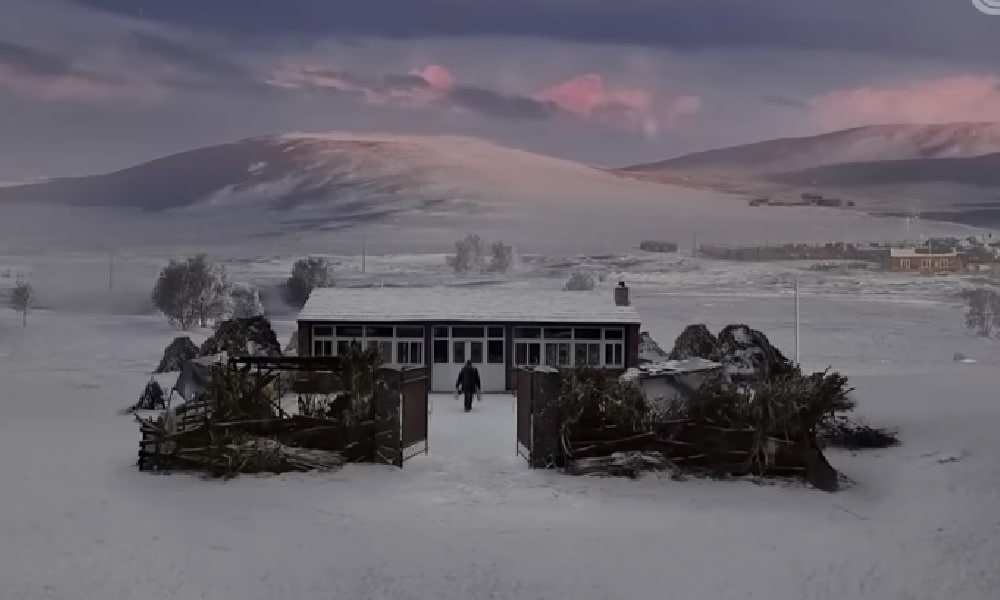
Riding an electric tricycle in the icy cold, his driver (actor Huang Bo 黄渤) asks him where he is going. “Can you keep your mouth shut?” Zhang replies (“你嘴严实不严实”). “I can,” the driver says, and Zhang then says: “So can I.”
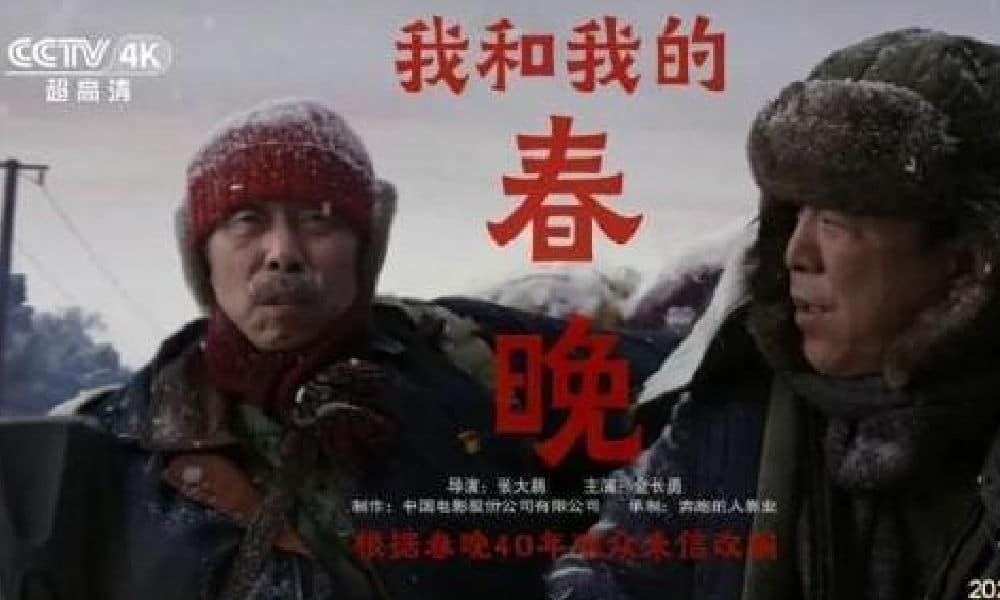
The voiceover narration, a first-person narrative by Zhang himself, explains that he has always been busy: “I never had time for the Spring Festival Gala. My Spring Festival fate is all because of something my captain said.”
The film jumps to a scene showing Zhang as a young military man during the Chinese New Year’s Eve, working outside while people are watching the Spring Festival Gala on a small black and white television inside. As his commander (played by Wu Jing 吴京) hands him his trumpet, he says: “Go and play your trumpet on the television.”
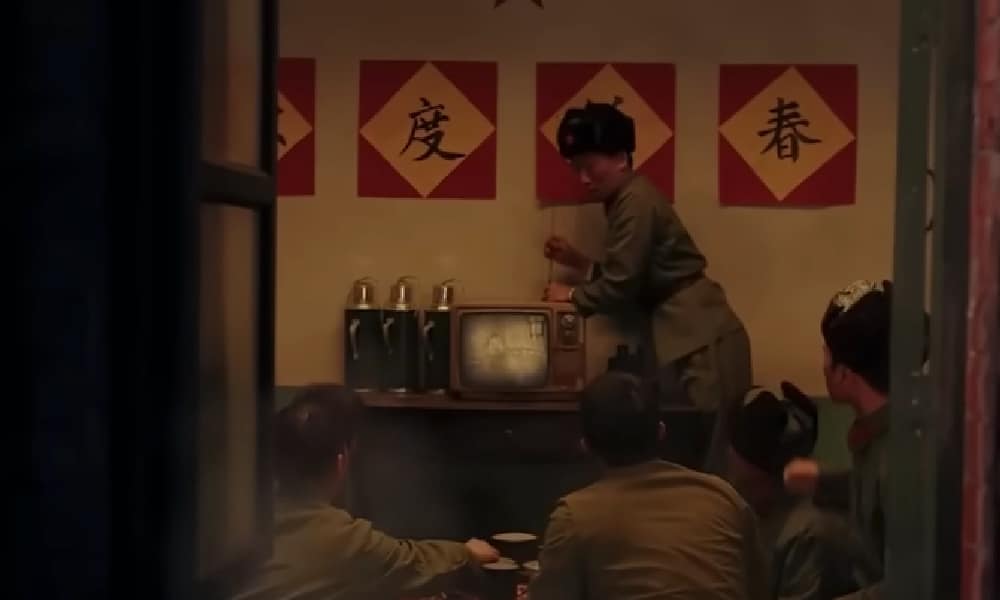
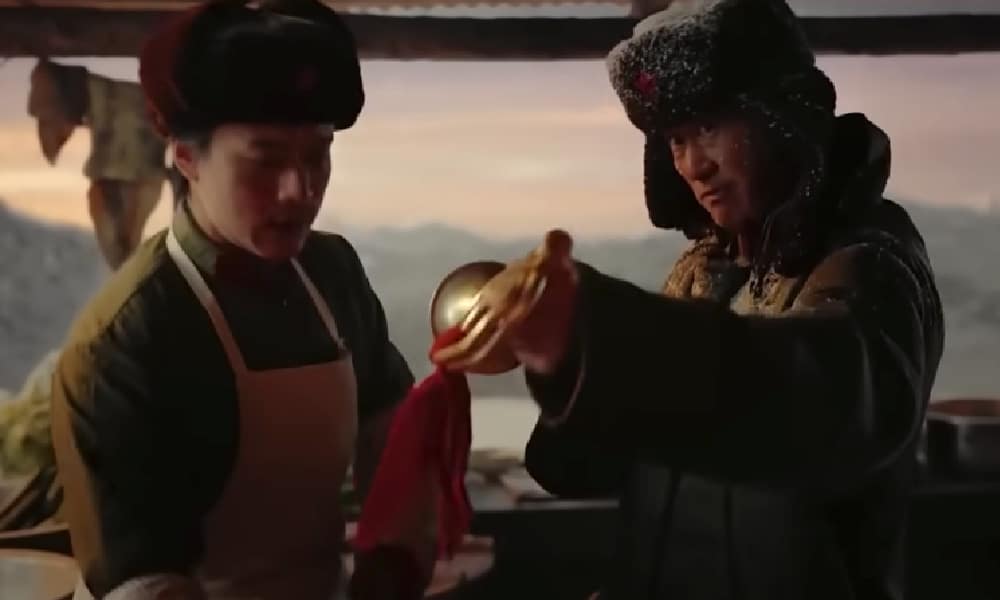
“If the leader asks me to go on the Spring Festival Gala, it’s a task I must complete,” the voice-over says.
But in the military scene itself, duty calls and Zhang has to blow the trumpet to announce dinner time.
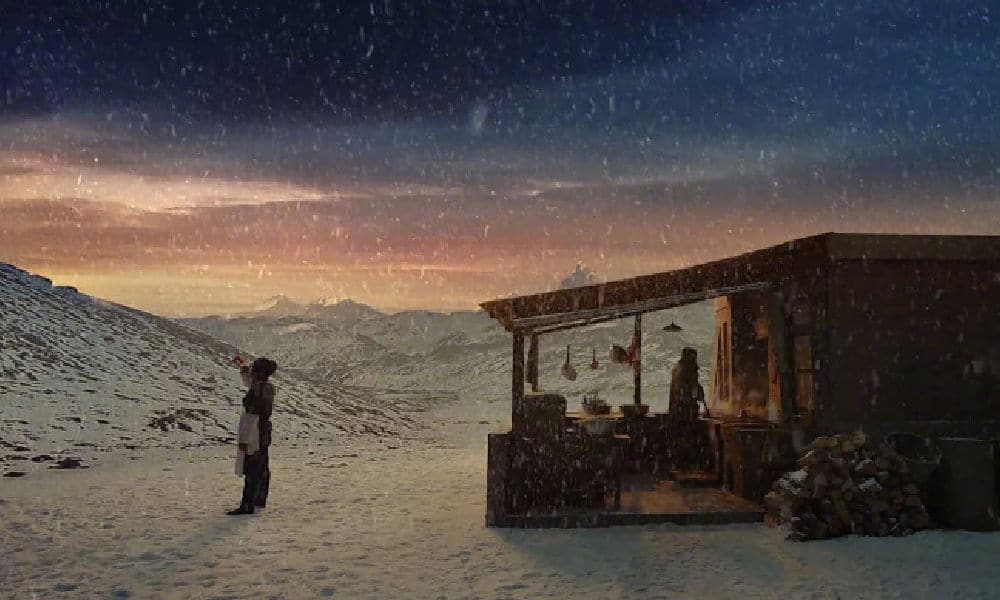
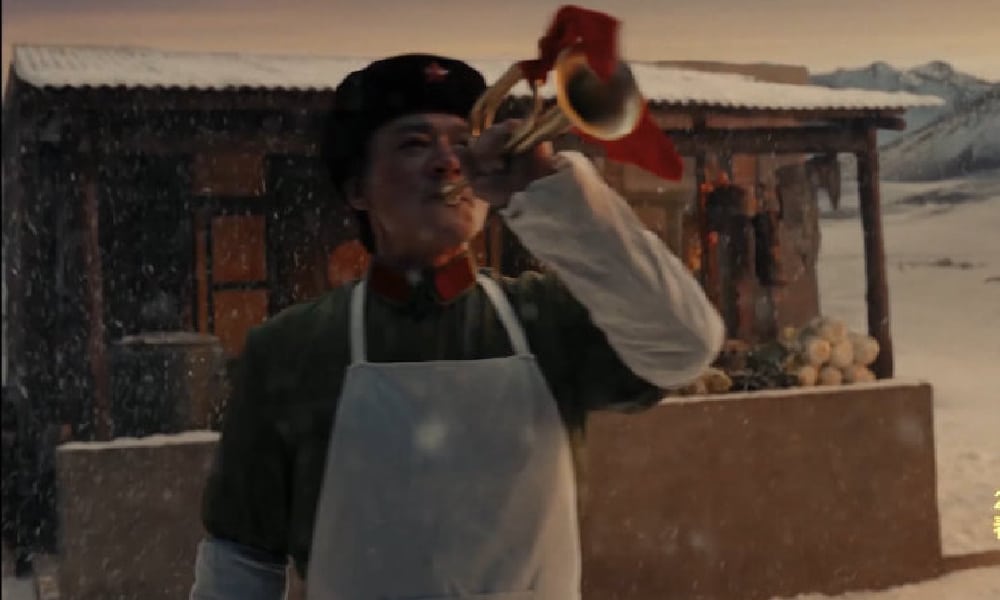
In the years that follow, Zhang is always busy during the Spring Festival Gala. Working in the factory, getting married, working on a train, farming cattle, taking care of his family, and always cooking. His trumpet is still there with him, to announce dinner time or hanging on the wall as a memory of times past.
As the years pass by, Zhang realizes that he has gradually forgotten about his commander’s words. Time moves fast. First, he had a son, then his son grew taller than himself, and then his son had his own son. “And I still had never been to the Spring Festival Gala.”
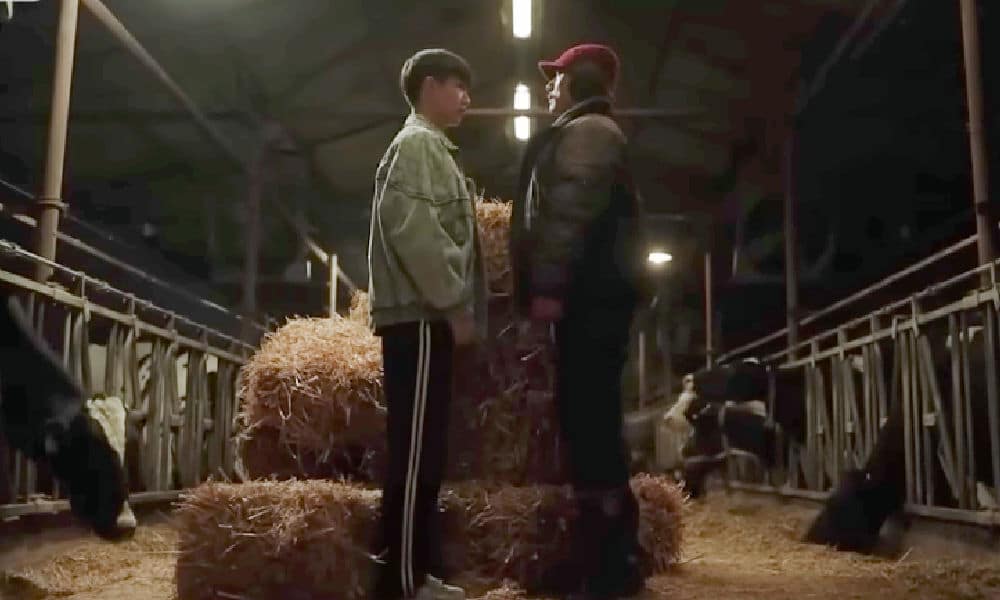
With his captain’s words back on his mind, Zhang, now an older man, sets out on his journey without telling anyone. By foot, by electric tricycle, by bus, and by train, Zhang travels all the way to the famous Beijing Studio 1 to perform at the Spring Festival Gala after being “too busy” for forty years.
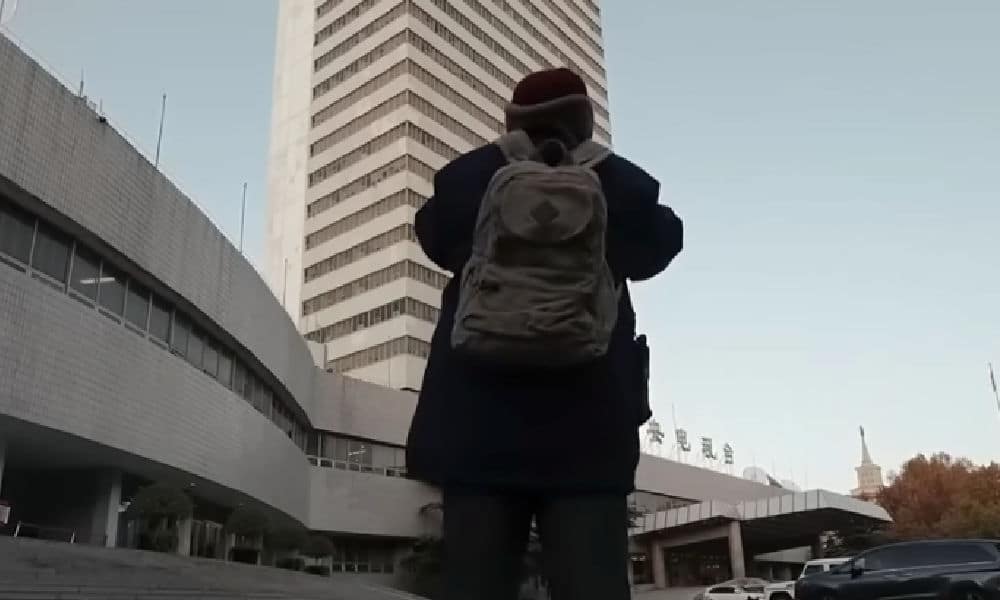
Backstage at the Spring Festival Gala, Zhang sits down with famous Chinese Spring Festival Gala performers (Ma Li 马丽 and Shen Teng 沈腾). While unpacking his lunchbox, he tells them he was finally not too busy to come on the show: “I wrote a letter and here I am.” “It’s that simple?” Ma Li wonders.

The producer then rushes to come and get Zhang, who bravely walks towards the stage with his old little trumpet.
A female voice-over then reads out a message, while we see various scenes throughout the years showing Zhang – from young to old – writing letters to CCTV from wherever he is.
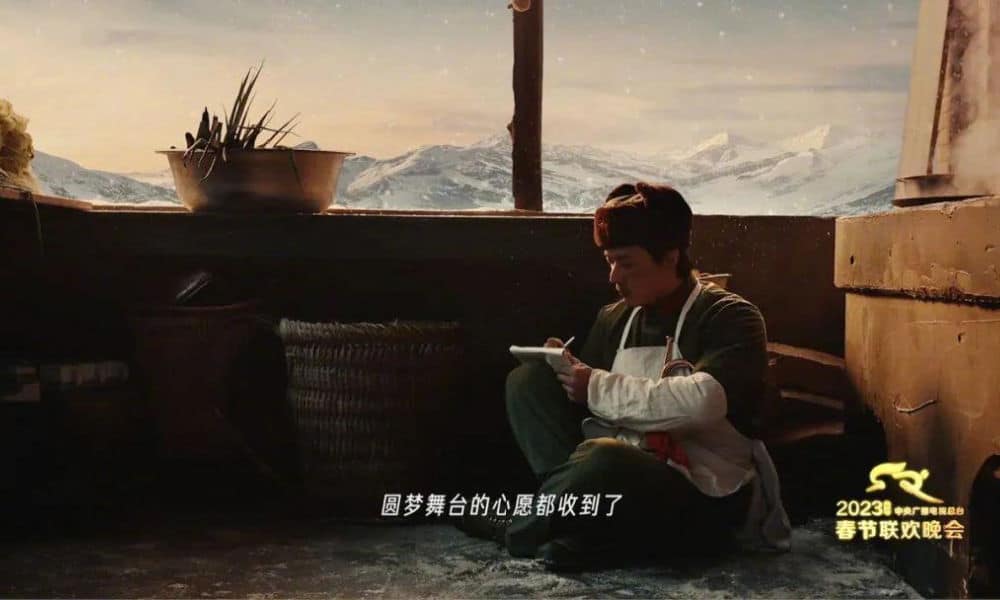
The female narrator says: “Dear Uncle Zhang, we’ve received your letter regarding your hopes to realize your cherished stage dream. In this age of emailing, and knowing that you’ve been writing us for 39 years, we’re moved and feel guilty. This is a late reply, and we sincerely hope we’re not too late..”
Meanwhile, we see a flashback to a mailman pulling up to old Zhang’s home (the mailman is the actor Wang Baoqiang), and the old Zhang finally receives that much-anticipated letter from CCTV at his remote rural home.
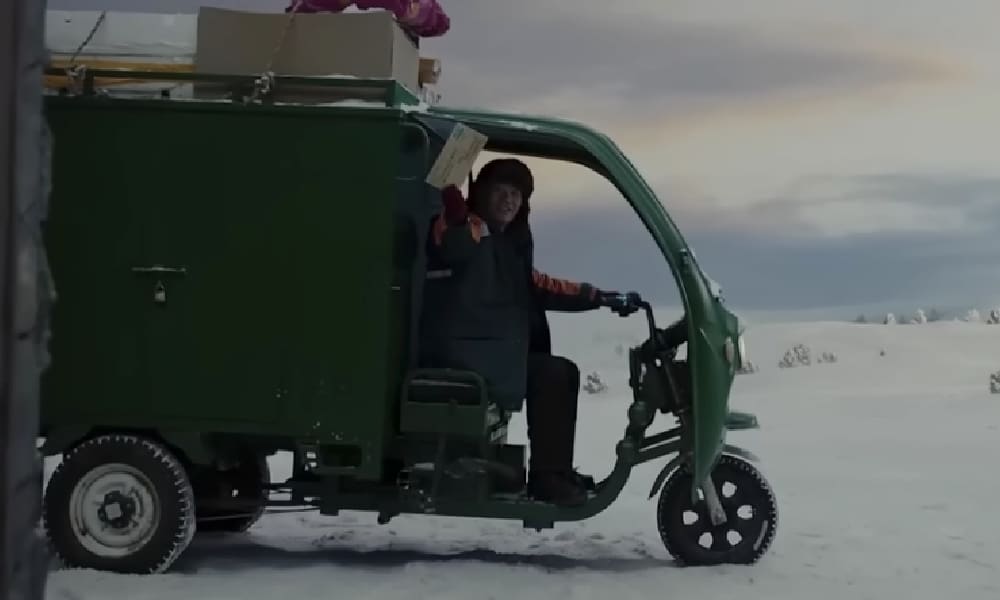
The female narrator continues: “This year, we proudly invite you to be a guest at the Spring Festival Gala and to “ring the dinner bell” [play the sound announcing dinner]. Sincerely, the Spring Festival Director Committee.”
In the final shot, we see Zhang blowing the trumpet at the Gala, with flashbacks showing him blowing that trumpet in all those decades before. He has finally made it to the big stage.
A Noteworthy Story
While Me and My Spring Festival Night received a lot of praise on Chinese social media, the story behind the film was not immediately clear to many viewers celebrating the Chinese New Year, but it was explained in several articles and interviews with director Zhang Dapeng.
During the live-televised Spring Festival Gala itself, the airing of Me and My Spring Festival Night was directly followed up by a shot featuring a person (a veteran) in the audience standing up and actually playing the trumpet.
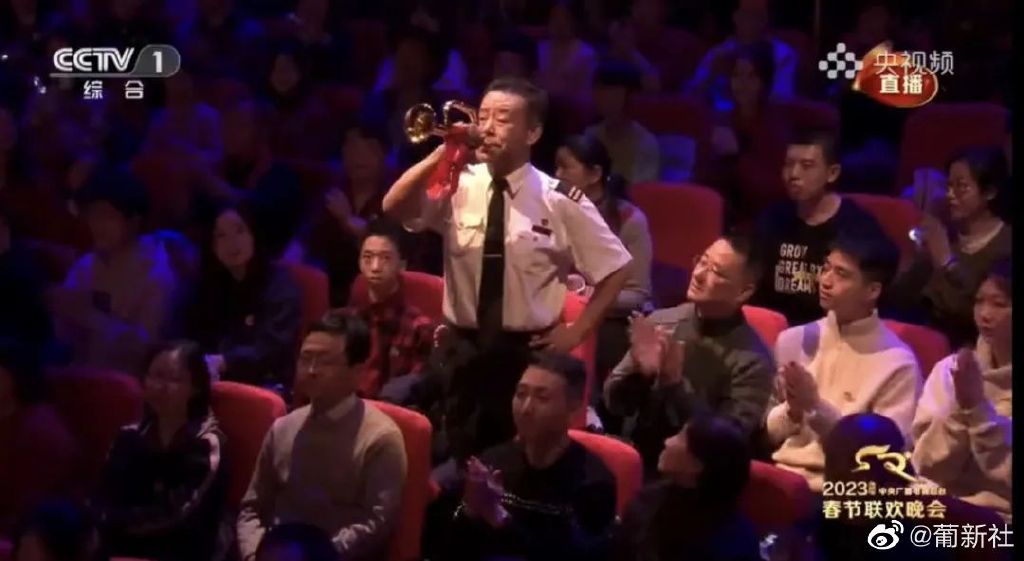
Directly after, the song “Goodmorning Sunshine” began, representing multiple people from all kinds of professions and social groups. About one minute into the song, the camera turns to another audience member: the person who plays ‘Uncle Zhang’ in the mini-film. Later in the song, we can see he is wiping away tears, visibly moved.
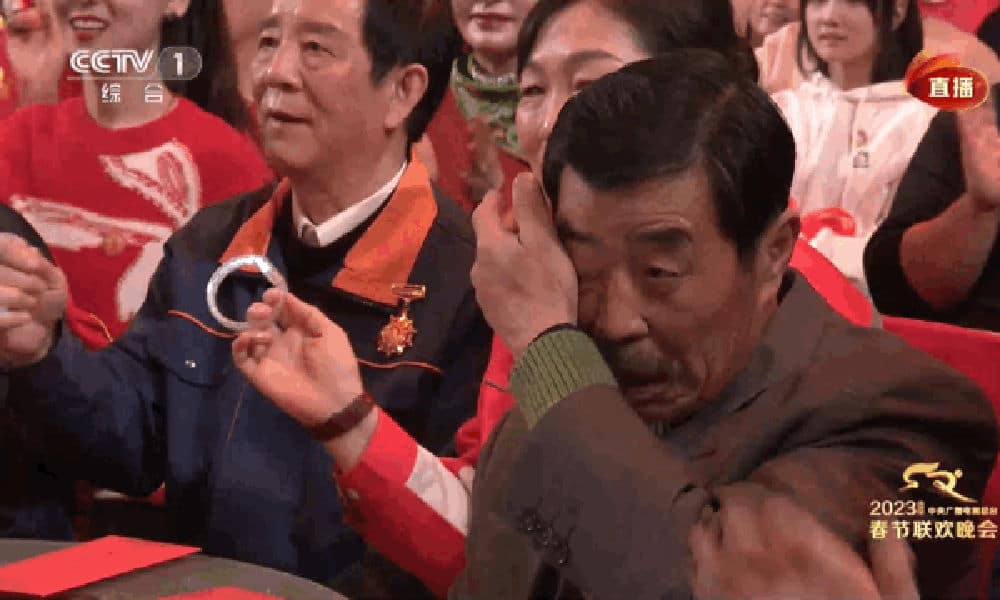
Why was he so moved? The older man in the audience, the main ‘Uncle Zhang’ actor in the film, is Jin Changyong (金长勇), and he actually is not a professional actor.
Somewhat similar to the character Zhang Jianguo, Jin Changyong or “Uncle Jin” (金叔) is a hardworking veteran from Hebei’s Huailai County in Zhangjiakou.
Jin Changyong is a 63-year-old farmer who is also active at the Hebei Tianmo Film and TV Park doing security and logistics-related jobs. He served in the army for four years from the age of 19, as, among others, a military chef.
Director Zhang Dapdeng came across ‘Uncle Jin’ one day while shooting another film at the studio. While Jin was busy doing kitchen work, director Zhang saw him and, as he later recounts, was struck by his face that showed he had “lived through many changes” (“这种饱经沧桑的脸”).
Zhang later invited Uncle Jin to star in the movie, and he also made sure Jin’s own story played a role in the script.
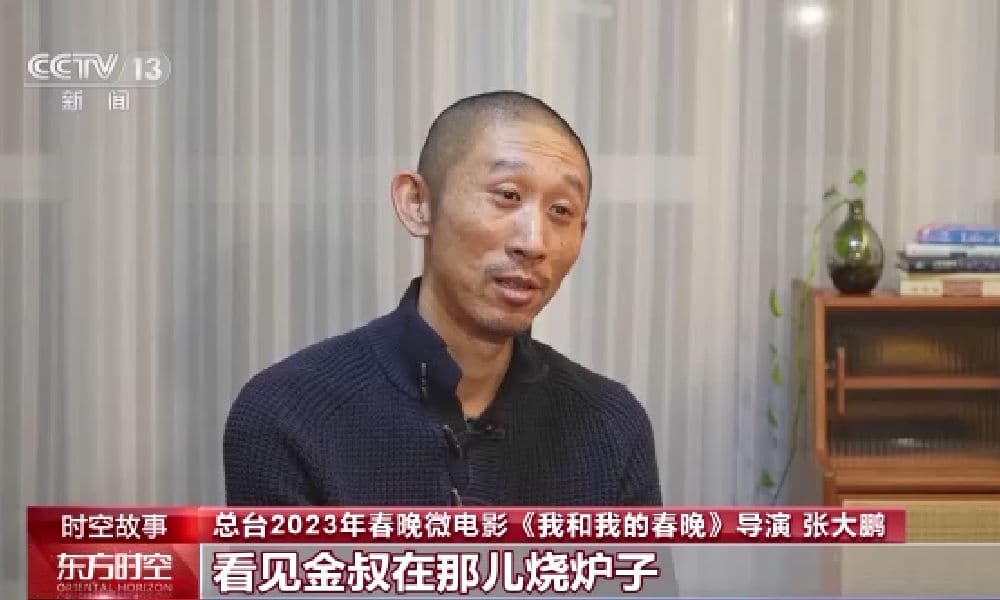
Director Zhang Dapeng, image via CCTV.
This makes this short movie all the more special, something which has since been discussed on Chinese social media (#春晚微电影的主演是普通农民#).
The surprising twist in the story is how Zhang Jianguo tells other people he has just always been “too busy” to attend the Gala, while he had in fact already written to the show for 39 years with the hope of one day being invited.
Another noteworthy aspect of the film is how Zhang Dapeng chose to cast some of China’s most celebrated actors as supporting roles to lift up the main character and actor, Jin, who was inexperienced and learnt from his fellow players.
In an interview, Jin expressed that the entire experience of playing in this short film left his overcome with emotion. After the filming had ended, he told reporters that he had sleepless nights because he had not received an actual invitation to the Spring Festival Gala yet, something which he so very much hoped for. Just one week before the show, that invitation finally came.
The fact that Jin, in a way, played a man like himself in the short movie has added to the film’s popularity.
“I was sincerely moved by this film,” one commenter wrote, with others saying: “This was the best program I’ve seen on the Gala over the past decade.”
While some people also remarked that the short film seemed to have been influenced by The Grand Budapest Hotel by Wes Anderson, others praised it for its originality.
“This was just the best part of the night,” several commenters said: “It made me cry.”
“Zhang Pengda – a name to remember,” others wrote.
You can watch the short film on Youtube here.
By Manya Koetse
Get the story behind the hashtag. Subscribe to What’s on Weibo here to receive our newsletter and get access to our latest articles:
Spotted a mistake or want to add something? Please let us know in comments below or email us. First-time commenters, please be patient – we will have to manually approve your comment before it appears.
©2023 Whatsonweibo. All rights reserved. Do not reproduce our content without permission – you can contact us at info@whatsonweibo.com.
The post Behind the Short Feature Film of the Spring Festival Gala appeared first on What's on Weibo.















